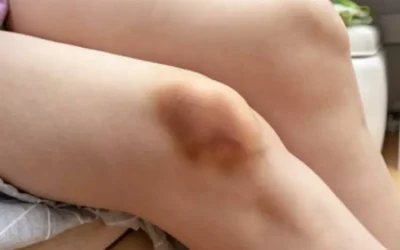Content
A link exists between alcohol and low body temperature, and it is known that people who are drunk are at risk of hypothermia. When these toxic byproducts remain in the body, side effects like flushed skin, nausea, vomiting, rapid heart rate, headache, and more can occur. Women going through menopause also experience hot flashes naturally and drinking alcohol can worsen these symptoms. It’s vital to keep in mind that these are only the mild symptoms of withdrawal.
Can you smell alcohol in sweat?
Sweat: Alcohol triggers several chemical reactions in the body that cause sweat to smell distinct and often bad as unmetabolized alcohol is excreted through the pores via sweat.
Without monitoring and access to round-the-clock care, alcohol withdrawal can be a life-threatening form of detox. Severe sweating at night could be caused by a number of things, for example, certain medications such as antidepressants, low blood sugar, menopause or fever. Excessive alcohol use can also trigger individuals to experience night sweats. There you have it — we’ve answered the question — why does alcohol make you hot?
Alcohol Withdrawal
If anxiety is a big problem for you then talking to a doctor can help. As many athletes know, it is imperative to wear the right type of clothing when performing. This is also the case when it comes to protecting yourself from sweat. The best type of underwear tend to be manufactured by athletic brands.
- Since alcohol disrupts your body’s temperature regulation, it can also cause further sweating as the night goes on.
- When there are high levels of alcohol in the body, it can cause your blood vessels to tighten, which results in an increase in blood pressure and heart rate.
- They can hold a steady job and maintain close relationships with family and friends, making it even harder to recognize the signs of alcoholism.
- This can mean releasing needed heat through sweating, and even blocking shivering when it’s cold, making it harder to warm up.
People who experience night sweats regularly after drinking may have an issue with alcohol. There are many risks of long-term alcohol use, does alcohol make you sweat including cancer and liver damage. With alcohol intake, the blood vessels in the skin tend to widen when the heart rate speeds up.
Other Causes of Alcohol Hot Flashes
Antiperspirant is a must have for anyone with excessive sweating, especially athletes. For example, if you are struggling with your grip on the ball you can apply antiperspirant to your hands so you won’t sweat as much from them. They can be applied before practice or a game and have virtually no side effects. You can find over-the-counter topical treatments for hyperhidrosis, like antiperspirants and powders, at your local pharmacy or grocery store. Some brands, like Carpe, have antiperspirant lotion that is useful for sensitive skin.
While this process makes the skin feel warmer, the widening of blood vessels is actually the body’s way of cooling itself down after alcohol consumption. For this reason, your skin might feel warm after drinking alcohol because your body is simply trying to push the heat out. What’s more, there’s a recognized link between alcohol and low body temperature, which is why drunk people are at risk of hypothermia. People who drink heavily often experience night sweats several hours or even days after consuming alcohol. Along with anxiety, depression, headache, loss of appetite, and sleep problems, this symptom of alcohol withdrawal frequently affects individuals who suffer from alcohol use disorder (AUD).
Sweating due to alcohol withdrawal
Getting night sweats from alcohol consumption may indicate symptoms of a drinking problem. If you’re physically dependent on alcohol, sudden withdrawal can result in night sweats. If you experience frequent night sweats due to drinking, you may https://ecosoberhouse.com/article/celebrating-the-first-year-sober/ have a drinking problem. For many people, night sweats may have links to their alcohol consumption for a particular occasion. Detoxification allows an individual to safely detox all the alcohol out of their body in a controlled environment.

Her passion is helping clients and families find the best treatment options to meet their individual needs as they embark on their journey to long-term recovery. Another option would be to have alcoholic drinks with lower alcohol content, which means your liver has less work to do since you’ll have less alcohol in your system. That way you can still enjoy some drinks, but also give your liver a bit of a rest. Your body can typically metabolise about one serving of alcohol each hour.

